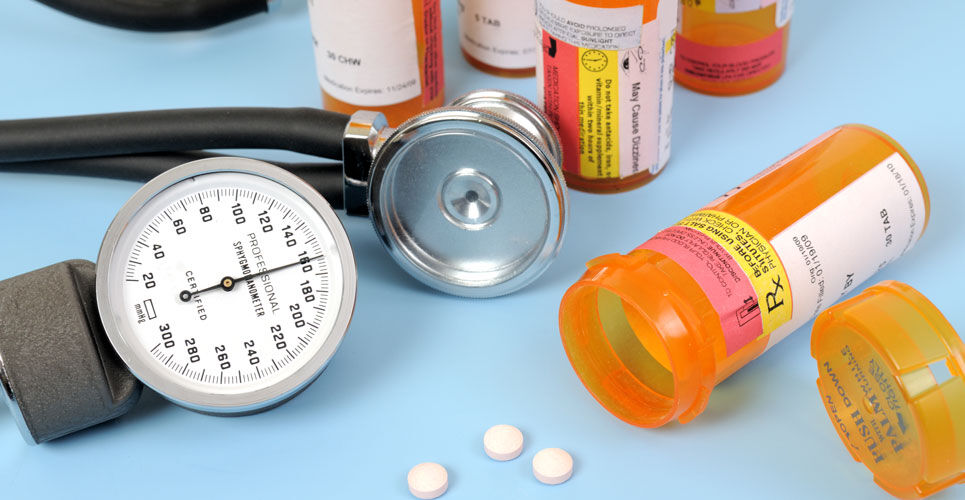Blood pressure medicine can be taken either in the morning or evening since timing does not impact on adverse cardiovascular outcomes
Blood pressure medicine can be taken in the evening or morning without having any impact on the risk of adverse cardiovascular outcomes according to the findings of a randomised trial by a team of UK researchers.
Among the risk factors for cardiovascular disease, high blood pressure (BP) is associated with the strongest evidence for causation and prevention of age-related increases in blood pressure would eliminate a large proportion of the population burden of BP-related CVD. Blood pressure in normotensives follows a diurnal rhythm, dipping during the night-time followed by an increase in the morning. Moreover, there is also marked diurnal variation in the onset time of cardiovascular events, with the peak being exhibited in early morning. An important issue for patients therefore is when to take their blood pressure medicine to reduce the risk of an adverse cardiovascular event. In a 2010 randomised, cross-over trial, the authors reported that among hypertensive patients whose BP was controlled, the timing of blood pressure medication administration (either morning or evening) did not affect mean 24-hour or clinic blood pressure levels. Nevertheless, the MAPEC study found that bedtime administration provided better BP control and a reduced risk of cardiovascular morbidity and mortality risk compared to morning dosing. In 2022, an International Society of Hypertension position paper that was endorsed by World Hypertension League and European Society of Hypertension, concluded that preferred use of bedtime drug dosing of antihypertensive drugs should not be routinely recommended in clinical practice. Despite this, the Hygia Chronotherapy Trial which again assessed the relative benefits of night versus morning administration of blood pressure medicine, concluded that the former was more effective at BP control and for reducing cardiovascular events.
Though the Hygia trial contained nearly 20,000 participants, concerns have been expressed over its findings. In trying to settle the argument over the best time for blood pressure medicine administration, the UK team established the Treatment in Morning versus Evening (TIME) study. TIME was an open-label, blinded endpoint-controlled superiority trial and participants were randomised 1:1 to morning (6 to 10 am) or evening (8 – 12 pm) dosing of their antihypertensives. The primary endpoint was a composite cardiovascular outcome of vascular death or hospitalisation for non-fatal myocardial infarction or non-fatal stroke whereas the secondary outcomes were the individual components of the primary outcome.
Blood pressure medicine dosing and cardiovascular outcomes
A total of 21,104 individuals with a mean age of 65.1 years (42.5% female) were enrolled and followed for a median of 5.2 years and of whom, 10.503 were assigned to evening dosing. The mean systolic blood pressures were broadly similar (135 mmHg in the evening group vs 134.8 in the morning group) as were the diastolic pressures (79.1 vs 78.8 mmHg).
The primary outcome occurred in 3.4% of those assigned to evening dosing and 3.7% of the morning group and this difference was not significant (Hazard ratio, HR = 0.95, 95% CI 0.83 – 1.10, p = 0.53). Similarly, there were no significant differences for any of the secondary endpoints.
The authors concluded that there was little difference in adverse cardiovascular outcomes when blood pressure medicines were taken in either the evening or morning.
Citation
Mackenzie IS et al. Cardiovascular outcomes in adults with hypertension with evening versus morning dosing of usual antihypertensives in the UK (TIME study): a prospective, randomised, open-label, blinded-endpoint clinical trial. Lancet 2022

